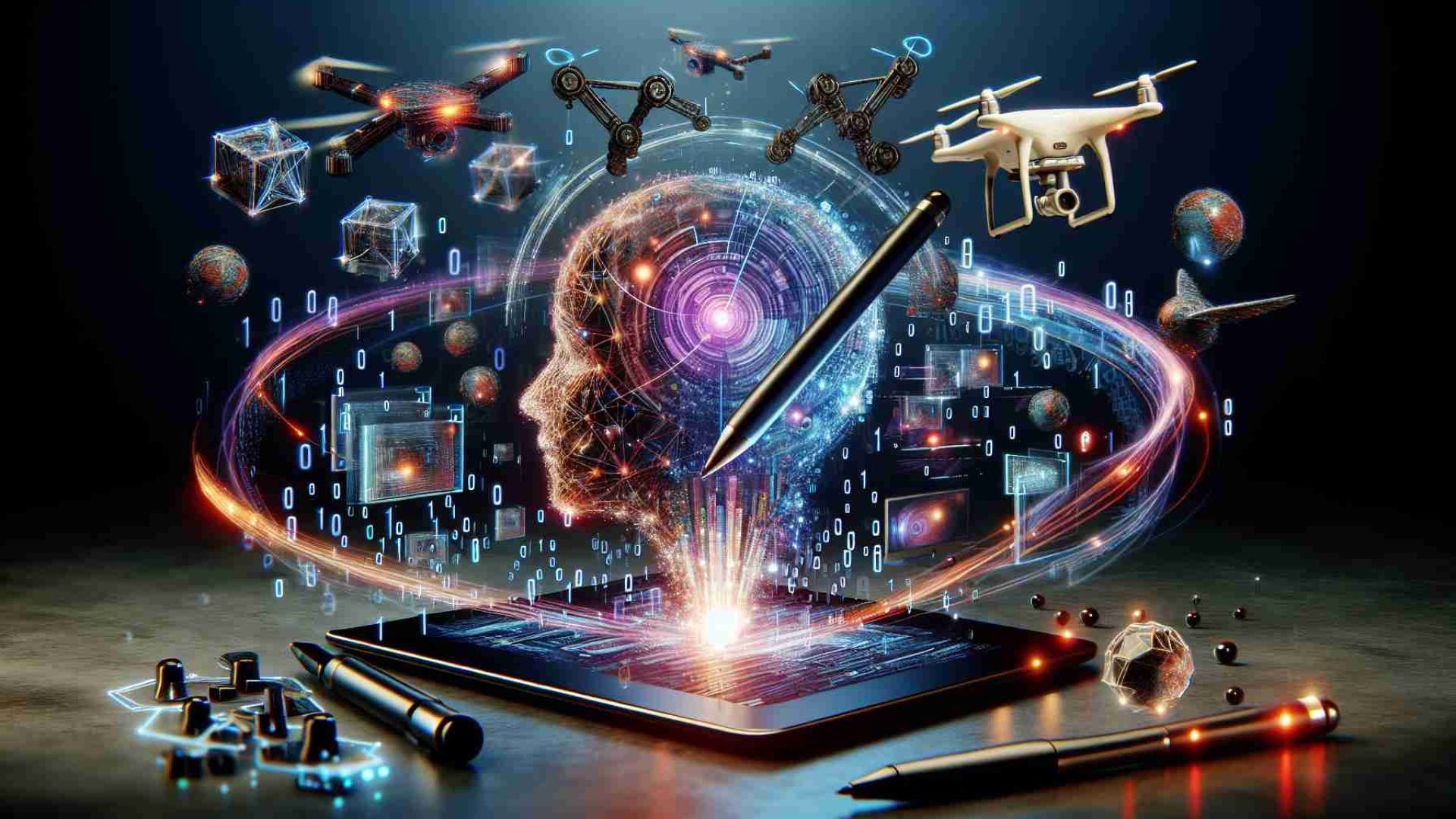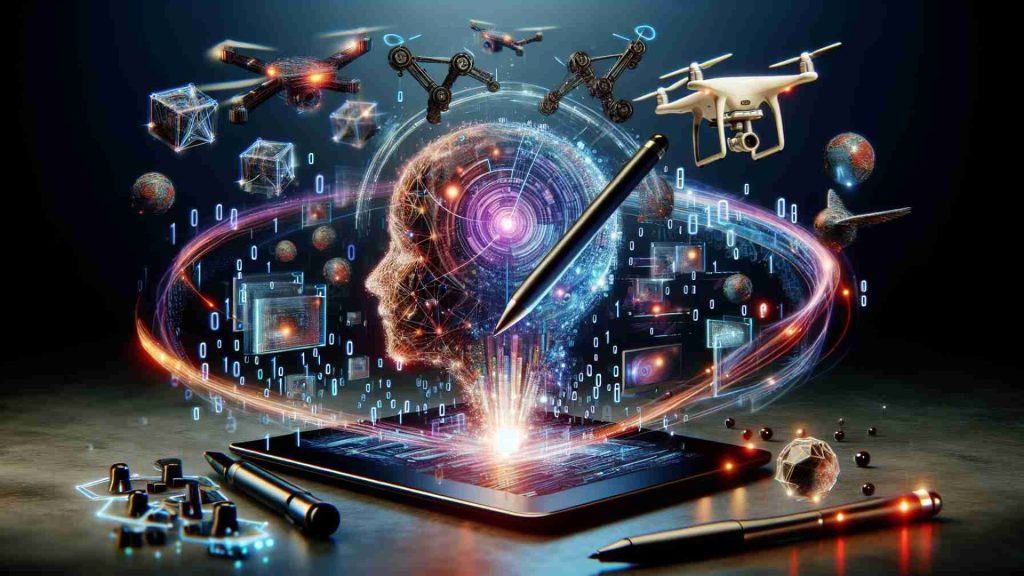Learn How AI is Revolutionizing Digital Content Creation


Learn How AI is Revolutionizing Digital Content Creation
#AI #ContentCreation #Innovation
Introduction
The digital landscape is saturated with vast amounts of content—articles, videos, images, and more—competing for user attention. As creators and brands strive to stand out, Artificial Intelligence (AI) is stepping in to reshape how content is generated, optimized, and distributed. By leveraging natural language processing, image recognition, and machine learning algorithms, AI-powered tools can streamline workflows, enhance quality, and personalize content experiences for audiences.
This article explores how AI is revolutionizing digital content creation, the benefits it offers, and the future trends that will further transform the way we produce and consume media online.
Key Applications of AI in Content Creation
AI-driven technologies are reshaping every stage of the content creation pipeline, from idea generation to post-production optimization:
Automated Writing and Copy Generation
Natural Language Generation (NLG) models produce written content—such as product descriptions, blog posts, and social media captions—at scale. This speeds up content production and frees writers to focus on more strategic, creative tasks.
Personalized Recommendations
AI-driven recommendation engines analyze user behavior, preferences, and consumption patterns to suggest relevant articles, videos, or podcasts. Personalized feeds improve user engagement and retention.
Image and Video Enhancement
Computer vision algorithms can automatically edit, enhance, and even generate visual content. From auto-adjusting lighting in photographs to creating realistic animations, AI simplifies the technical aspects of media production.
Content Ideation and Topic Discovery
Machine Learning (ML) models identify trending topics, emerging keywords, and audience interests, guiding creators toward content ideas with high engagement potential.
Multilingual and Localized Content
AI-powered translation and localization tools break language barriers, enabling creators to adapt content for global audiences, expanding reach and fostering cultural relevance.
Benefits of AI in Digital Content Creation
Integrating AI into content creation workflows delivers numerous advantages:
- Increased Efficiency: Automated generation and editing tools reduce production time, allowing content teams to scale output rapidly.
- Cost Reduction: By handling repetitive tasks, AI minimizes reliance on extensive human labor, cutting operational expenses.
- Enhanced Quality: AI-driven optimizations—such as grammar checks, keyword enhancements, and visual refinements—improve content accuracy and appeal.
- Data-Driven Decisions: Analytics and insights from AI models guide creators toward topics and formats that resonate with audiences, increasing performance and ROI.
- Global Reach: Automated translation and localization open new markets, helping brands connect with diverse audiences worldwide.
Key AI Technologies in Content Creation
Several AI technologies power the transformation of digital content creation:
Natural Language Processing (NLP)
NLP enables AI to understand, analyze, and generate human-like text, fueling everything from chatbots and language models to content summarization and sentiment analysis.
Generative Adversarial Networks (GANs)
GANs create realistic images, videos, and audio by pitting two neural networks against each other. This technique produces high-quality media for marketing campaigns, product visualizations, and immersive storytelling.
Reinforcement Learning
Through trial and error, reinforcement learning algorithms discover the most engaging content strategies. Models learn to suggest formats, headlines, and publishing schedules that capture audience attention.
Voice and Speech Recognition
Speech-to-text and text-to-speech systems facilitate content creation for podcasts, audiobooks, and voice assistants, allowing creators to repurpose or expand their reach across audio channels.
Case Studies
Media Publisher A: Automated News Summaries
Publisher A integrated AI-driven text summarization tools to produce concise daily briefs. Readers saved time finding key insights, increasing user satisfaction and site visits.
Brand B: Personalized Video Recommendations
Brand B implemented ML-based recommendation engines that suggested videos based on user preferences. Engagement metrics soared, with users spending more time exploring tailored content.
E-Learning Platform C: Multilingual Course Materials
Platform C used AI-powered translation to adapt course content into multiple languages, growing their international user base and improving learning outcomes for students worldwide.
Challenges and Considerations
While AI unlocks new possibilities in content creation, several challenges remain:
Ethical and Copyright Issues
AI-generated content may raise questions about intellectual property rights, authenticity, and the need to disclose automated contributions.
Maintaining Authenticity and Brand Voice
Creators must ensure that AI-generated content aligns with their brand identity and meets audience expectations without feeling artificial or impersonal.
Quality Control
AI models sometimes produce errors or biased outputs. Human editors should review and refine content to maintain accuracy, fairness, and credibility.
Training and Implementation Costs
Setting up robust AI systems requires technical expertise, ongoing maintenance, and investment in infrastructure to ensure seamless integration into existing workflows.
Future Trends in AI-Driven Content Creation
As AI continues to advance, emerging trends will further shape digital content experiences:
AI-Generated Interactive Media
Future AI models will produce multimedia content—such as interactive stories, virtual reality scenes, or immersive gaming worlds—allowing users to engage with content in more dynamic ways.
Emotional and Contextual Understanding
AI systems will better interpret user emotions, cultural nuances, and situational context, creating content that resonates on a deeper, more personal level.
Collaborative AI-Human Workflows
Creators and AI tools will work in harmony, with AI handling repetitive tasks and suggesting improvements, while humans inject creativity and strategic thinking.
AI-Assisted Multichannel Strategies
As audiences consume content across platforms and devices, AI-driven insights will unify strategies, ensuring consistent messaging and user experiences.
Conclusion
AI is reshaping digital content creation by accelerating production timelines, improving quality, and delivering personalized experiences at scale. As these technologies mature, they will empower creators, brands, and platforms to connect with audiences more meaningfully. However, careful attention to authenticity, ethics, and quality control remains essential to ensure AI-enhanced content continues to delight and inform.
Embracing AI in content creation enables industry professionals to stay agile, innovative, and better equipped to meet the evolving demands of the digital landscape.



